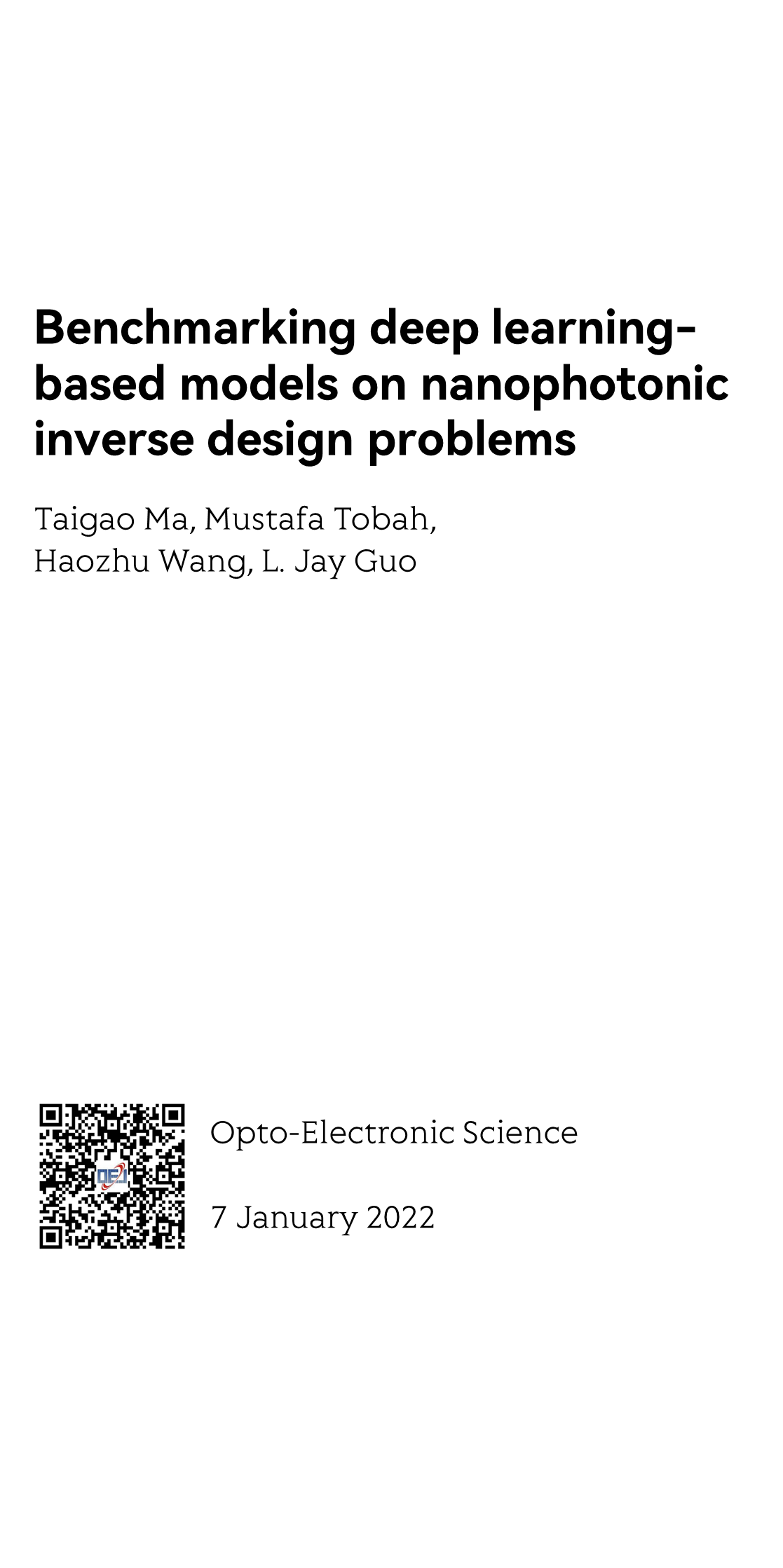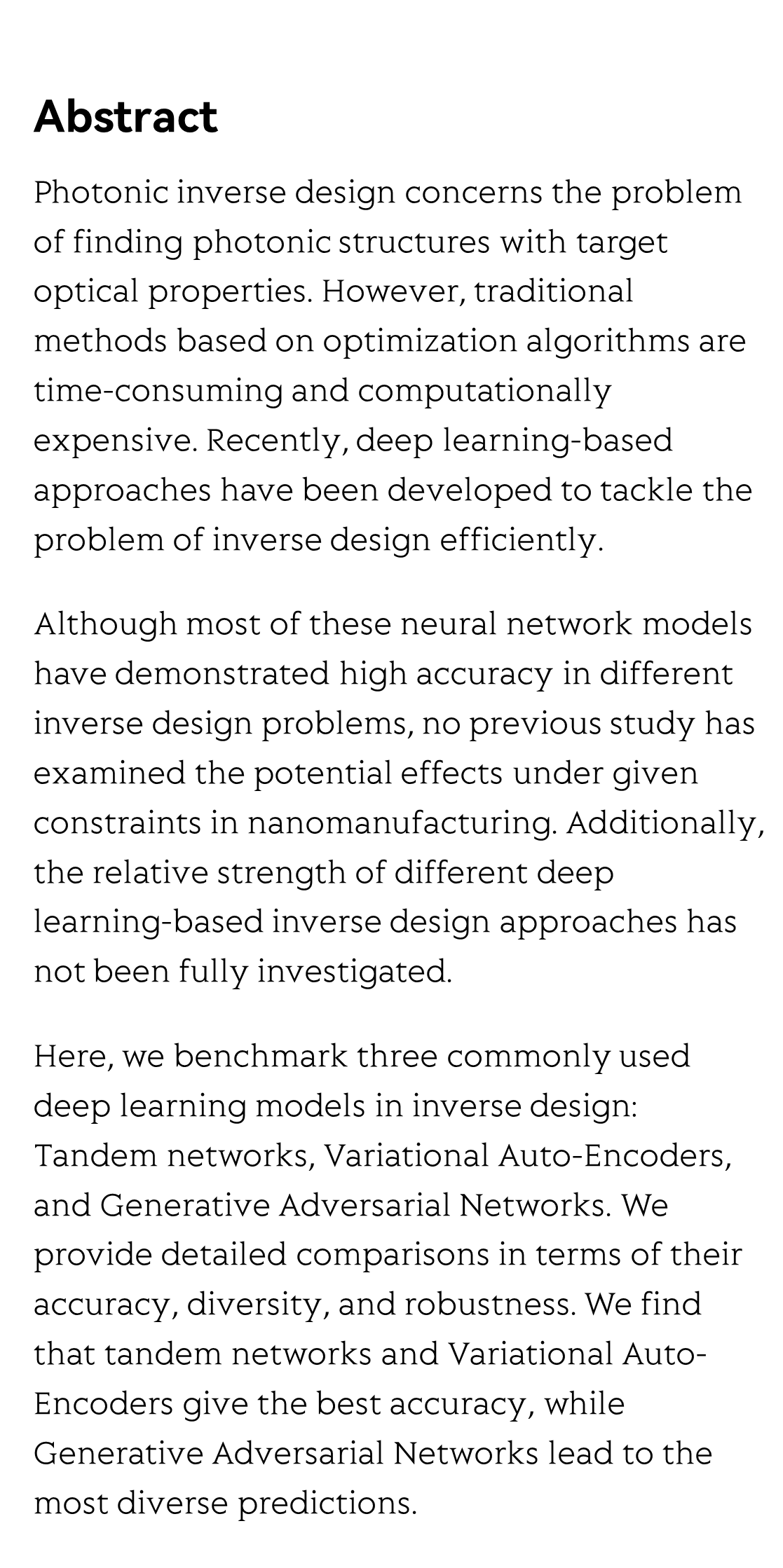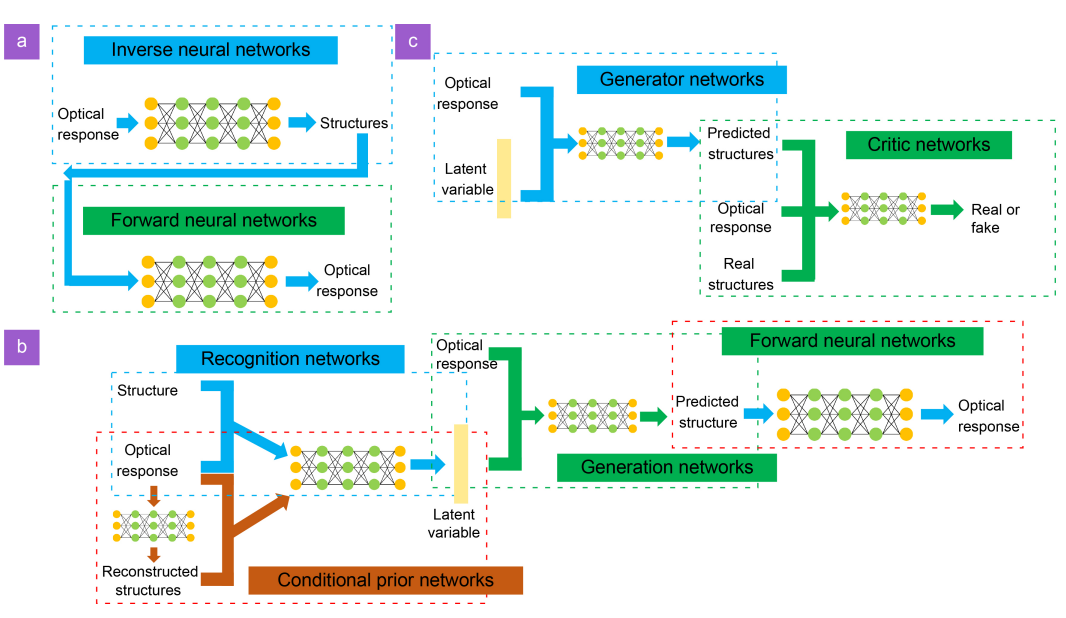(Peer-Reviewed) Benchmarking deep learning-based models on nanophotonic inverse design problems
Taigao Ma 马太高 ¹, Mustafa Tobah ², Haozhu Wang 王浩竹 ³, L. Jay Guo 郭凌杰 ³
¹ Department of Physics, The University of Michigan, Ann Arbor, Michigan, 48109, USA
² Department of Materials Science and Engineering, The University of Michigan, Ann Arbor, Michigan, 48109, USA
³ Department of Electrical Engineering and Computer Science, The University of Michigan, Ann Arbor, Michigan, 48109, USA
Opto-Electronic Science, 2022-01-07
Abstract
Photonic inverse design concerns the problem of finding photonic structures with target optical properties. However, traditional methods based on optimization algorithms are time-consuming and computationally expensive. Recently, deep learning-based approaches have been developed to tackle the problem of inverse design efficiently.
Although most of these neural network models have demonstrated high accuracy in different inverse design problems, no previous study has examined the potential effects under given constraints in nanomanufacturing. Additionally, the relative strength of different deep learning-based inverse design approaches has not been fully investigated.
Here, we benchmark three commonly used deep learning models in inverse design: Tandem networks, Variational Auto-Encoders, and Generative Adversarial Networks. We provide detailed comparisons in terms of their accuracy, diversity, and robustness. We find that tandem networks and Variational Auto-Encoders give the best accuracy, while Generative Adversarial Networks lead to the most diverse predictions.
Our findings could serve as a guideline for researchers to select the model that can best suit their design criteria and fabrication considerations. In addition, our code and data are publicly available, which could be used for future inverse design model development and benchmarking.
High-resolution tumor marker detection based on microwave photonics demodulated dual wavelength fiber laser sensor
Jie Hu, Weihao Lin, Liyang Shao, Chenlong Xue, Fang Zhao, Dongrui Xiao, Yang Ran, Yue Meng, Panpan He, Zhiguang Yu, Jinna Chen, Perry Ping Shum
Opto-Electronic Advances
2024-12-16
Ultra-high-Q photonic crystal nanobeam cavity for etchless lithium niobate on insulator (LNOI) platform
Zhi Jiang, Cizhe Fang, Xu Ran, Yu Gao, Ruiqing Wang, Jianguo Wang, Danyang Yao, Xuetao Gan, Yan Liu, Yue Hao, Genquan Han
Opto-Electronic Advances
2024-10-31







